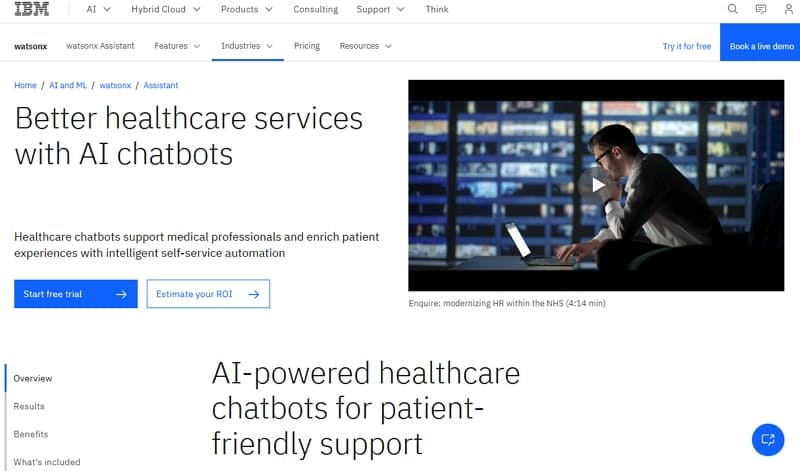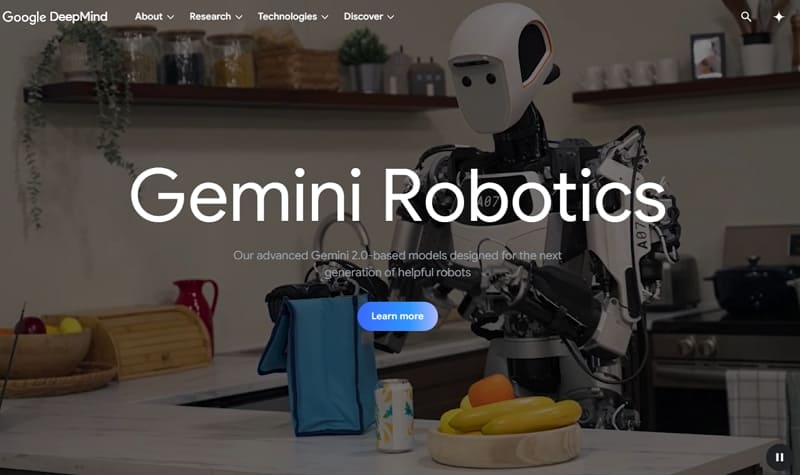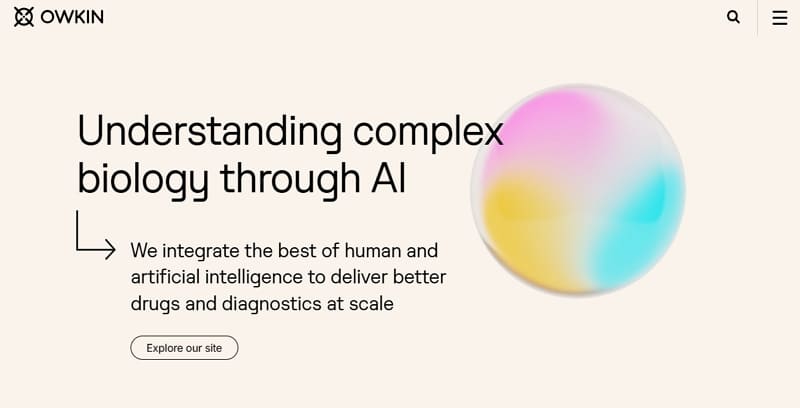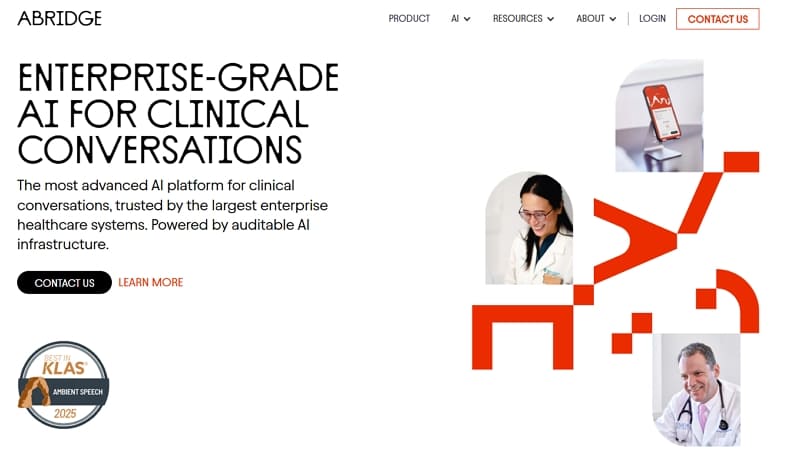Technology keeps evolving, and it has taken every field to new heights. As far as the recent dramatic improvements in healthcare go, AI is at the core. From hospitals to research centers, each is now on the AI train to improve patient care and develop better treatments. Moreover, Artificial intelligence in healthcare has suggested personalized treatments and even predicted potential health risks before they become serious. This guide will explore the current and future impact of this AI in healthcare tech in detail.
What is AI in Healthcare?
Artificial intelligence in healthcare is basically the use of advanced algorithms and machine learning models to bring things up a notch. It assists medical professionals in diagnosing diseases, managing treatments, and improving patient care. Due to its core function of processing a large amount of medical data in almost no time, AI helps doctors make faster and more accurate decisions.
Nowadays, AI-powered tools play a crucial role in healthcare technology, analyzing medical images, predicting disease risks, and personalizing treatment plans based on patient records. Additionally, hospitals and clinics utilize AI for administrative tasks, boosting efficiency. AI virtual assistants and chatbots further enhance patient engagement by providing instant responses to medical inquiries.
Top 5 Companies Using AI in Healthcare
There is no doubt that artificial intelligence is revolutionizing this field to highest no one thought of before. Not to mention that it is being helped by numerous companies leading the charge in integrating this tech into medical practices. This use of AI in the healthcare industry has transformed how it used to operate. Explored below are 5 famous companies that are making a significant impact:
1. IBM Watson Health

Making major breakthroughs in AI and healthcare, this company has focused on using artificial intelligence to help doctors. Specifically, it puts effort into helping them diagnose diseases and recommend treatments. By analyzing massive amounts of medical data, its AI-powered system helps physicians make more accurate clinical decisions. Notably, partnerships with leading cancer research institutions ike Memorial Sloan-Kettering Cancer Center have integrated AI into oncology.
2. Google’s DeepMind

Taking healthcare innovation further, it has leveraged artificial intelligence to transform diagnostics and patient monitoring. Plus, its collaborations with the UK’s National Health Service have led to the development of powerful AI healthcare systems. These are capable of finding acute kidney injury by going through the patient data. Furthermore, DeepMind’s AI has been employed to interpret medical images to aid in the early detection of diseases like diabetic retinopathy.
3. Microsoft Healthcare

Pushing the boundaries of AI in medicine, this technology giant has dedicated its efforts to improving medical research and treatment strategies. Via a partnership with Oregon Health & Science University’s Knight Cancer Institute, Microsoft AI tries to predict effective cancer drug treatments. Additionally, its AI for healthcare initiatives includes analyzing medical images to monitor tumor progression and developing programmable cells to combat diseases.
4. Owkin

Bringing predictive analytics powered by AI to the forefront, Owkin specializes in using advanced techs to improve medical research. Besides, as it combines machine learning with medical data, the company gets to build models that predict disease evolution and treatment. Plus, its platforms facilitate collaborative research to let entities share insights on how AI is used in healthcare. As this approach accelerates drug discovery and enhances personalized medicine, it showcases Owkin’s dedication.
5. Abridge

Focusing on enhancing communication between doctors and patients, this organization has introduced AI solutions to streamline medical consultations. Moreover, its advanced system automatically transcribes and summarizes conversations for the record. When doing so, Abrige’s tools ensure that key details such as prescriptions and follow-up instructions are accurately noted. Plus, this AI healthcare company is making a significant impact on patient engagement and adherence to medical advice.
When Did AI Become Popular in Healthcare?
As far as the emergence of artificial intelligence in this field goes, it did not happen overnight. Instead, its rise happened gradually with a close relationship to advancements in computing power. Moreover, the ease of data availability and algorithm development further shaped its growth. Although early AI applications healthcare sector began in the 1950s and 1960s, widespread adoption did not become a thing due to limited tech.
However, things changed a lot in the 2010s when deep learning and big data analytics unlocked AI’s true potential. During this period, AI tools began demonstrating remarkable accuracy in diagnosing diseases and interpreting medical images. Additionally, major tech companies and institutions invested heavily in research to result in groundbreaking innovations. Today, AI has become an integral part of the modern health field. As it advances, its role will only grow stronger.
Different Types of Artificial Intelligence in Healthcare Industry
To call AI a singular thing when it comes to the health field can be an incorrect statement. In reality, it is a collection of different artificial intelligence solutions designed to improve various aspects of medical care.
Each type of AI serves a unique purpose, from assisting doctors in diagnosing diseases to automating administrative tasks. Discussed below are AI in healthcare examples or types you need to know:
1. Machine Learning in Healthcare
This technique analyzes vast amounts of medical data to identify patterns to predict diseases and recommend personalized treatments. The best thing about it is that such models improve over time by learning from new data to enhance diagnostic accuracy and treatment outcomes. Moreover, machine learning supports drug discovery through the identification of possible compounds.
2. Natural Language Processing
NLP extracts insights from clinical data by enabling computers to process human language. AI chatbots and virtual assistants also rely on NLP for improving interactions. Moreover, it allows live transcription of conversations to improve medical documentation.
3. Computer Vision in Medical Imaging
Using such techs enhances the accuracy of medical imaging by a lot via detecting abnormalities in X-rays, MRIs, and CT scans. As a matter of fact, these tools let radiologists identify tumors and neurological disorders. Not to mention that AI image analysis can fasten diagnoses to let doctors start treatment plans sooner.
4. Robotic Process Automation
Opting for these AI tools streamline administrative tasks like patient scheduling and billing. Due to manual work reduction, RPA lets healthcare professionals focus more on patient care. Along with that, these systems cut down human mistakes in records to improve efficiency.
5. Predictive Analytics in Patient Care
Advanced AI models analyze patient histories, genetic data, and lifestyle factors to tell possible disease risks and their treatment. That enables doctors to take preventive measures and offer more personalized healthcare plans. Notably, this tech helps hospitals manage resources efficiently by forecasting admission rates and optimizing staff allocation.
The Benefits of AI in Healthcare
It would not be wrong to say that artificial intelligence has revolutionized this industry. Notably, this tech has enhanced efficiency and improved accuracy to make patient care more personalized.
At the same time, AI makes treatments more accessible, helping detect diseases earlier and tailor therapies to individual patients. Anyhow, here are some of the most impactful advantages of artificial intelligence in healthcare:
- Faster and More Accurate Diagnoses: AI tools analyze medical images and test results in patient data to find possible diseases with greater accuracy and speed. In addition, figuring out conditions like cancer in their early stages means better treatment for successful outcomes.
- Personalized Treatment Plans: Besides, artificial intelligence tailors medical care to individual patients on the basis of their unique genetic makeup and medical history. With a focus on lifestyle factors, it aims to get working therapies to reduce adverse reactions and enhance successful recovery.
- Reduced Administrative Burden: Through automation, tasks from patient scheduling to data entry have become far more straightforward and save a lot of time. Furthermore, a cut down on paperwork to improve efficiency lets healthcare providers focus more on delivering quality care.
- Drug Discovery and Development: Machine learning predicts drug efficacy from molecular data, speeding up medicine creation. Additionally, its ability to suggest potential side effects speeds up the research process to bring out new treatments faster.
- Improved Patient Monitoring and Care: Finally, wearable devices and other monitoring systems continuously track patient vitals with the help of AI. As for their purpose, they detect abnormalities and alert doctors to potential health risks. With that, early intervention can also reduce hospital visits and improve long-term patient health.
Challenges for Artificial Intelligence in Healthcare
While AI is taking this field towards new standards, its adoption comes with significant headaches of its own. There is no denying that AI improves diagnostics, treatment, and administrative processes. Yet, several obstacles must be addressed to maximize its potential.
How AI is used in healthcare relates chiefly to data privacy and ethical concerns. Explored below are some of the biggest challenges artificial intelligence faces in this field:
1. Data Privacy and Security Risks
Firstly, AI relies on vast amounts of patient content, making cybersecurity a significant concern. From unauthorized access and data breaches to misuse of sensitive medical information, these issues can compromise a lot.
2. Ethical and Bias Issues
During their training, AI models can inherit biases to cause unfair treatment recommendations. Ethical concerns also arise when AI systems make critical medical decisions without human oversight.
3. High Implementation Costs
From its development to maintaining AI solutions in healthcare requires significant financial investment. Many hospitals and clinics are finding it hard to afford such AI techs due to not having enough funds.
4. Lack of Standardized Regulations
A lack of universal regulatory frameworks for AI in this field leads to inconsistencies. Also, they have become prominent in safety, validation, and compliance requirements across different regions and institutions.
5. Resistance from Healthcare Professionals
Furthermore, many doctors and medical staff hesitate to trust AI recommendations, fearing job displacement or questioning its reliability. Proper training and awareness are the things that can help build confidence in such tools.
How AI is Reshaping Decision-Making?
The artificial intelligence revolution in the health field has improved a lot of things by a wide margin. When it comes to making decisions, it offers deep insights to enhance diagnostic accuracy and optimize treatment plans.
As the AI analyzes vast amounts of medical data, the results empower doctors to make clinical decisions. Detailed below are some key ways AI in healthcare is reshaping the field:
- Enhancing Diagnostic Accuracy: Using AI tools, it becomes a lot easier to process medical images and genetic data to find diseases with a much better success rate. Along with this reduction in mistakes, AI helps doctors make faster and more confident decisions.
- Predicting Disease Progression: Secondly, machine learning models go through a lot of patient data to predict disease progression, enabling early intervention. Thus, opting for these lets doctors adjust treatment plans proactively to improve health outcomes.
- Optimizing Treatment Recommendations: As AI helps patients get more curated treatment plans, it does that by analyzing their history, genetics, and lifestyle factors. Besides, not only does that ensure more effective treatments, but it also minimizes side effects.
- Improving Hospital Resource Management: With predictive analytics, hospitals can manage bed occupancy and staffing levels to maintain supply chains. Also, with optimal resource allocation, healthcare facilities can operate at a much better level to reduce patient wait times.
- Accelerating Drug Development Decisions: AI helps a lot in finding promising drug candidates and aiding in trials. Additionally, analyzing molecular structures and predicting speeds up the development process.
The Future of AI in Healthcare
One thing that no one can deny is that the current progress of artificial intelligence in this field is a mere beginning. AI in healthcare will offer advancements that promise to enhance patient care and accelerate medical research. Hence, hospitals and other such providers are increasingly adopting AI to alleviate staff workloads and improve efficiency.
For instance, India’s Apollo Hospitals has allocated 3.5% of its digital budget to AI over the past two years. Moreover, it is planning to increase this investment in the future. They’re automating routine tasks to give their professionals back two to three hours of their day. In the pharmaceutical sector, companies like Johnson & Johnson (J&J), Merck, and Eli Lilly are emphasizing AI literacy among their workforces.
Among these, J&J has implemented mandatory generative AI training for over fifty-six thousand employees. Similarly, Merck has developed GPTeal for its more than 50,000 workers. On the other hand, researchers at Mass General Brigham developed a tool that predicts cognitive decline with 77% accuracy by analyzing brain wave patterns. However, challenges remain such as a study found AI models missed 66% of critical injuries, raising concerns about reliability.
How Can ZEGOCLOUD AI Help in the Healthcare Industry
Rapid evolution in healthcare necessitates urgent, innovative solutions. Emerging AI technologies offer powerful tools to streamline processes and enhance patient care. ZEGOCLOUD is a leading provider of real-time communication APIs that help by integrating artificial intelligence into its solutions. Regarding its AI healthcare solution, it can enhance patient care, streamline operations, and improve overall healthcare experiences.
ZEGOCLOUD’s AI agent API enables the development of healthcare applications that respond to patient inquiries within 500 milliseconds. Hence, implementing this solution can ensure timely and accurate information delivery. Plus, this technology addresses common health questions, provides medication guidance, and offers personalized reminders. Through its telehealth API and SDK solutions, ZEGOCLOUD facilitates effortless virtual consultations between patients and doctors.
This approach of AI in healthcare not only improves patient engagement but also optimizes resource management within facilities. Additionally, the real-time AI capabilities of ZEGOCLOUD assist professionals in making faster and more accurate diagnoses. By analyzing medical images and patient data instantaneously, AI algorithms can detect abnormalities and support clinical decisions. In short, ZEGOCLOUD plays a pivotal role in modernizing the healthcare industry.
Conclusion
In summary, artificial intelligence in healthcare enhances diagnostics, streamlines workflows, and improves patient care. Despite challenges, AI’s potential continues to grow, shaping the future of medical decision-making.
Companies like ZEGOCLOUD are driving this transformation with AI-powered solutions that improve communication, diagnostics, and efficiency. As AI advances, its role in healthcare will only expand, making medical services more accessible, accurate, and efficient for patients and professionals worldwide.
Read more:
FAQ
Q1: How is artificial intelligence used in healthcare?
Artificial intelligence is used in healthcare for diagnostics, treatment planning, and patient care. It helps analyze medical images, detect diseases, and predict health risks. AI also personalizes treatment plans based on patient data and assists in administrative tasks like scheduling and billing. Hospitals use AI chatbots and virtual assistants to improve patient engagement by providing instant responses to medical inquiries.
Q2: What are the pros and cons of AI in healthcare?
AI improves diagnostic accuracy, speeds up decision-making, and reduces costs by automating administrative tasks. It enhances patient care through predictive analytics and virtual assistants. However, AI also raises data privacy concerns, requires high implementation costs, and depends on high-quality data for accuracy. Additionally, it may lead to job displacement and lack the human touch needed in patient interactions.
Q3: How is artificial intelligence used in patient care?
AI is used in patient care through chatbots and virtual assistants that provide instant responses to medical inquiries. It also helps in remote monitoring, personalized treatment recommendations, and automating routine administrative tasks, allowing doctors to focus more on critical cases.
Let’s Build APP Together
Start building with real-time video, voice & chat SDK for apps today!










